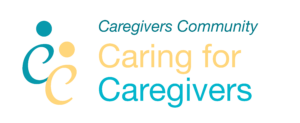** Edited by
Baha and Margaret Habashy
The Challenge
How do you navigate a complex healthcare system?
The healthcare journey is no small feat for caregivers. The complex healthcare system demands that they become passionate advocates for their loved ones. In navigating medical jargon and mediating conflicting priorities, they are the unsung heroes of an emotionally charged process. In all of this, they are energized by one simple purpose, ensuring the best possible care for their loved ones.
Meet Pola
Meet Pola, a mom who is as tough as nails and has a soft heart as she faces one of life’s big challenges. Her son needs surgery to stay alive, and getting the right care is leading her through a tricky maze and a complex puzzle. In solving this puzzle, Pola must become her son’s lead advocate, learning about complicated medical words and conflicting system priorities.
Pola is the complex system hidden hero. She works hard to manage different tasks—making appointments and dealing with confusing healthcare stuff—all to make sure her son gets the best help possible. It’s not easy, but she keeps going energized by one clear goal to make sure her son is okay.
The sleepless nights and tireless efforts become a testament to Pola’s resilience, as she fights not only for medical clarity but also for her son’s emotional well-being. Each step is fueled by a mother’s love, propelling her through the challenges with unwavering determination.
In the face of adversity, she emerges as a beacon of hope, showcasing the extraordinary lengths a mom can go in order to secure a brighter, healthier future for her child.
BIBLICAL INSIGHTS
Isaiah 41:10: “So do not fear, for I am with you; do not be dismayed, for I am your God. I will strengthen you and help you; I will uphold you with my righteous right hand.”
This verse provides comfort by emphasizing that God is a constant presence, offering strength and support. For caregivers facing the complexities of the healthcare system, it serves as a reassurance that divine guidance is always available.
Psalm 34:17-18: “The righteous cry out, and the Lord hears them; he delivers them from all their troubles. The Lord is close to the brokenhearted and saves those who are crushed in spirit.”
In the challenging role of caregiving, this verse brings solace by affirming that God hears the cries of those facing difficulties. It offers hope to caregivers, assuring them of divine closeness during tough times.
Matthew 11:28: “Come to me, all you who are weary and burdened, and I will give you rest.”
Caregivers often carry heavy burdens. This verse invites them to find rest and relief in their faith. It speaks to the weariness of caregivers, encouraging them to turn to God for solace and rejuvenation.
Psalm 32:8: “I will instruct you and teach you in the way you should go; I will counsel you and watch over you.”
This verse encourages caregivers to find the Lord’s direction and counsel in difficult situations when they don’t know the next step to take. It encourages them to turn to God who knows and understands all and He will advise and watch over them.
THOUGHTS AND TIPS
- Master Medical Terminology: Example: Invest time in learning basic medical terms to better comprehend healthcare discussions, aiding your ability to communicate effectively with medical professionals.
- Build a Healthcare Rolodex: Example: Compile a comprehensive list of contacts including doctors, specialists, insurance representatives, and support services, streamlining communication within the healthcare network.
- Navigate Insurance Policies: Example: Study and understand your loved one’s insurance policy, identifying covered services, copays, and potential out-of-pocket expenses to anticipate and mitigate financial challenges.
- Create a Medical Timeline: Example: Develop a detailed timeline chronicling your loved one’s medical history, procedures, and treatments, providing a quick reference for healthcare professionals during consultations.
- Utilize Patient Portals: Example: Engage with online patient portals offered by healthcare providers to access medical records, and appointment schedules, and communicate securely with the care team.
- Advocate for Coordinated Care: Example: Actively encourage healthcare providers to share information and collaborate on your loved one’s treatment plan, promoting a cohesive and well-coordinated approach to care.
- Stay Informed on Medications: Example: Maintain an updated list of medications, dosages, and potential interactions, facilitating discussions with healthcare professionals and ensuring safe medication management.
- Understand Billing Procedures: Example: Familiarize yourself with healthcare billing procedures, review statements regularly, and address any discrepancies promptly to prevent financial misunderstandings.
- Explore Telehealth Options: Example: Investigate and utilize telehealth services for non-urgent medical consultations, reducing the need for frequent in-person visits and easing the logistical challenges of healthcare appointments.
- Participate in Care Conferences: Example: Actively engage in care conferences involving multiple healthcare providers to ensure a comprehensive understanding of your loved one’s overall health and treatment plan.
- Document Care Decisions: Example: Keep detailed notes on healthcare discussions, decisions, and recommendations, serving as a reference guide during future consultations and minimizing misunderstandings.
- Navigate Specialist Referrals: Example: Understand the process of obtaining specialist referrals, ensuring timely access to required expertise and minimizing delays in your loved one’s healthcare journey.
- Stay Alert to Policy Changes: Example: Regularly check for updates or changes in healthcare policies, insurance coverage, and medical facility protocols, adapting your approach to align with the evolving healthcare landscape.
- Utilize Case Managers: Example: Collaborate with healthcare case managers to navigate complex medical situations, ensuring seamless communication and coordination between different aspects of your loved one’s care.
- Seek Second Opinions: Example: Don’t hesitate to seek second opinions from different healthcare professionals, fostering a comprehensive understanding of treatment options and potential alternatives.
- Facilitate Communication: Example: Bridge communication gaps between healthcare providers by consolidating medical information and sharing it proactively, promoting a more cohesive and integrated approach to care.
- Plan for Discharge: Example: Engage with healthcare providers early in the hospital stay to plan for a smooth discharge, ensuring post-hospital care arrangements are well-coordinated and understood.
- Advocate for Clear Communication: Example: Encourage healthcare providers to communicate clearly, avoiding medical jargon and ensuring that you comprehend information, fostering transparency and informed decision-making.
- Stay Informed About Emerging Technologies: Example: Explore and adopt technologies that enhance healthcare navigation, such as health apps, virtual consultations, and remote monitoring devices, to stay ahead of evolving healthcare trends.
- Develop a Healthcare Calendar: Example: Create a detailed calendar tracking appointments, tests, and follow-ups, helping you stay organized and ensuring that critical healthcare tasks are not overlooked in the complexity of the healthcare system.
At our Community Forum you post your prayer requests, gain spiritual guidance, seek emotional support, and get answers to your caregiving questions. Moderated by qualified Christians, pastors, and healthcare professionals, it is our gift to serve you.
** Note: This blog content was developed with help from ChatGPT 3.5. The story, names and images are for illustration only.






Leave a Reply
Want to join the discussion?Feel free to contribute!